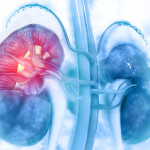
Despite many decades of research, sleep remains to some extent as mysterious as the dreams it produces. One thing is for sure. A good night sleep can make you feel like the king of the world, while a single sleepless night makes you nod off, leaves you unmotivated, lowers your patience and in short makes you feel plain awful.
A good laugh and a long sleep
are the best cures in the doctor’s book.
Irish Proverb
A national risk.
Actually you are not alone. 50 to 70 million of Americans suffer from some type of sleep disorder. Like you, they experience the drowsiness, lack of focus, impaired judgment and if tested after too little sleep, exhibit lower mental performance.
In fact, sleep deprivation has been identified as a significant factor in many major accidents. To name just a few:
– The 1979 nuclear accident at Three Mile Island.
– The 1986 explosion of the space shuttle Challenger.
– The 1989 Exxon Valdez oil tanker spill.
In our everyday life.
The sleep division of Harvard Medical School found in a 2004 study, that hospitals could reduce the number of medical errors as much as 36 percent by limiting an individual doctor’s work shift to 16 hours and reducing the total work schedule to not more than 80 hours per week.
The Institute of Medicine estimates, based on recent studies, that drowsy driving is responsible fully for 20% of all motor vehicle crashes, which means approximately 1 million crashes, 500,000 injuries, and 8,000 deaths each year in the U.S. are the direct result of sleep deprivation.
These catastrophic results are explained once we understand how fast and strong, the lack of sleep impacts our body. Within 24 hours of insufficient sleep, stress hormones – cortisol – begin to rise, inflammation increases, the immune system begins to lose its efficiency and the body decreases its ability to metabolize glucose. As might be expected, the long-term consequences are just as dramatic. They include higher risk at developing chronic medical conditions like diabetes, obesity, high blood pressure, and heart disease. Let’s face it, sleep deprivation simply reduces life expectancy.
There is more than enough proof that too little sleep is not just a fancy New York way of life, but a true national pandemic.
Plan for the future: sleep enough today to be healthy tomorrow!
What is sleep? From the outside, sleep for human being looks like a period of rest with eyes closed and little response to external stimuli. From inside, sleep is a period of profound changes. Some of them are about rest for the physical body. The breath slows down, the body temperature lowers, the stress hormones go down, the heart itself gets some rest as it beats at a slower tempo and the blood pressure decreases.
Sleep, however, is much more than resting. During sleep, the brain undergoes different phases including REM – Rapid Eye Movement – and NREM – deep sleep. EEG – electroencephalogram – tests have shown that during the REM, the phase associated with dreams, the brain activity can actually be higher than during waking phases.
Your Memory wants you to sleep…
Memory can be seen as a loop with 3 different phases – taking in new information, retaining the information and recalling them at the appropriate moment. We all know from experience that the first and third phases are much easier done when we have rested enough. Studies have shown that memory retention is linked to the REM phase of sleep. Therefore it comes as no surprise, that a good night’s sleep, before and after learning or acquiring new skills, is key in memory building. Furthermore, sleeping later won’t allow you to catch up on the part of the memory consolidation. For babies and children who are in an intensive learning phase, the right amount of night sleep and nap time is crucial.
…and your Immune system too.
Many of the major restorative functions in the body like muscle growth, tissue repair by stem cells, protein synthesis and human growth hormone release occur mostly – if not only – during sleep.
You now understand why sleeping more when fighting off an infection or recovering from an injury is a natural and healthy process. Allowing yourself this extra sleep time will actually hasten your recovery by supporting your body during the repair process.
After a CranioSacral Therapy and Visceral Manipulation session.
On the same token, sleeping after a manual therapy session is essential to give your body the chance to assimilate and complete the work we have started together. When you spend time on the table changes occur, new information is offered to your body and processes are engaged. To draw the full benefit from the treatment, you need to sleep and allow your body, mind and spirit the time and energy to do the necessary integration. Perhaps the recovering work that needed to happen had not been done before the appointment and led you to schedule in the first place. Would you ever expect a computer or a car to last efficiently 80 or 100 years without turning off, cooling down, undergoing reset time or maintenance?
“The future belongs to those who believe
in the beauty of their dreams.”
Eleanor Roosevelt
Dreams are probably the area of sleep that remains the most mysterious of all. Some scientists say that dreams are the result of random activity of the brain. It seems, however, that the subjects that have the most chance to show up in dreams are the ones that are recent, repetitive or emotionally charged.
Here are my suggestions to have meaningful dreams.
- Before sleeping, take some time to quiet and center yourself. Get in touch with your personal belief system, be it religious or simply acknowledging the Universe you are a part of.
- Give thanks/show gratitude for the good things that happened in your day, if only going to a safe and warm bed on a full stomach.
- Ask to remember your last dream of the night upon awakening and for it to bring you insight for your life in the present time.
- When you wake up, before opening your eyes, try to remember your last dream. Did it offer you something to learn from?
Sleep hygiene: how to get the sleep you need in the real world.
During the day:
- Exercise for at least 30 minutes and not later than 4 hours before your bed time,
- Nap lightly or not at all: 20 min or less and no later than 4 to 6 hours before bedtime, otherwise it might reduce the drive to sleep at night.
- Practice relaxation techniques such as yoga, qi gong, meditation, breathing exercises etc… Can you use some of them to help you unwind and fall asleep?
Food and medication:
- Be aware of stimulants:
- Caffeine: coffee, tea and soft drinks, and never later than lunch.
- Alcohol: might help you fall asleep but might as well wake you up in the night.
- Nicotine, avoid it specially right before bed.
- Check if insomnia could be a side effect of one of your medications.
During the Evening:
- Practice thought stopping. Decide on a time at night after which making plans for the future, worrying about work, and paying the bills is put off to the next day,
- Avoid late and heavy dinners before going to bed. Prefer an early dinner and a light snack later if you happen to be hungry again.
- Balance your fluid intake to avoid waking up thirsty or to urinate.
Use your bedroom as a bedroom, for sleeping and sex only:
- Ban all backlit screens from your bedroom: TV, phones, tablets etc. They bring stimulations and light that can disturb the natural circadian rhythm that makes you feel sleepy and fall asleep.
- Ban fidgety pets out of the bedroom.
- Develop a nightly routine: reading, writing, meditating, listening to calm music, sharing a moment with your loved one.
- Invest in heavier light blocking curtains and earplugs.
- Adjust the room temperature to what feels right for you, avoiding extremes.
- Be consistent in your bedtime.
At night:
- If you wake up at night, don’t watch the clock.
- If you lay in bed too long and not fall asleep – more than 20 min – get up and go do something else in another room and come back to bed when you are truly tired.
How much sleep time is recommended?
- Newborns: 16 to 20 hours,
- Between the ages of one and four: 11 or 12 hours.
- Adolescent: 9 hours.
- Adults: 8 hours even for elderly, though it might become more difficult to get them in one block.
“There is a time for many words,
and there is also a time for sleep.”
Homer
Sleep is not a waste of time or a luxury which you can save for later to make more time for work or play. As you go to bed tonight may you enjoy your sleep as a safe and sound investment that will gracefully deliver its return in the form of your health and safety.
CranioSacral Therapy, Somato Emotional Release and Visceral Manipulation in New York.



Leave a Reply